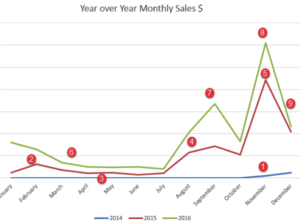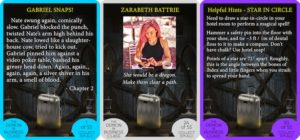Writing for Academia is Writing
Amanda Faith
There is something about starting a new year with goals and expectations. Although I have never really been one to set a “new-year resolution,” I find myself at least looking ahead to what I want to accomplish for the upcoming year. I like making lists, so I start planning and developing ideas. I research to see what markets are available to submit my works. Somehow, life has a sense of humor and decides it wants to play its own games. This year has proven to be no exception.
After being in the classroom for over 21 years, I decided to make a career change. I wanted to be a librarian. This required me to go back to school, a decision that took a lot of soul searching. I already had four degrees. Did I really want a fifth? Did I really want to be a student again taking graduate-level classes? I took the plunge and started January 2016.
My days of writing creatively dwindled away as my time was overtaken with homework, projects, and papers. It didn’t help any that I was working two jobs; I taught both high school and college English. I graded a lot of essays and other homework, tests, quizzes, and projects. Some days I thought my head would explode.
I would guest blog here and there. I would create and send out a short story or two. I would start outlines or jot down story ideas, but never quite finished them. As the days wore on, I was becoming depressed. How could I find more time to write? I wanted to finish a book or complete more short stories…anything to be writing again. It seemed that I would never find the time or energy to get it done.
Then I had an epiphany sometime this summer. I was writing. It’s just in a different format.
I started looking over all of the essays, journal entries, discussion boards, and projects I had been creating. They were products that took a lot of work that I was proud of. I reread the feedback I received. Feedbacks are a lot like reviews. So many of my “reviews” were along the lines of “what great insight I had” or “I never thought of it quite like that.” Some of my classmates could tell that I was a published author. Some of them even commented that they thoroughly enjoyed my postings as they told a tale of the antics of high school happenings. Even though my postings were true tales, they still told a story. I made them entertaining. Some were funny. Some were heartfelt. All of the entries had a style that reflected a part of “me.”
That lifted my spirits. I was writing. Granted, it wasn’t creative writing or writing for pay. It was writing for a reward, for progress, and for completion of my goal of graduating. It was getting those words down, planning and revising, and submitting that final draft. There was still the anxiety of waiting on the “publisher” (aka, my professor), to determine how well I had done. It was still the same process as writing and submitting a fantasy or mystery. It was academic, which is just as rewarding.
The year is almost over, and I have accomplished a lot. I will graduate in December this year with my new degree. I just passed the state test to become a Media Specialist. I will achieve my dream and start my new adventure. All because I am a writer.
Writing for academia is writing.
Amanda’s Bio:
Award-winning author Amanda Faith may have been raised in Dayton, but her heart and home is in the South. With a lifelong love of teaching and writing, she had plenty of encouragement from teachers and friends along the way. Loving a good puzzle has always been a fascination, and writing gives her the outlet to put all the pieces together.
Being adventurous and loving to try new things, it wasn’t long before her characters found themselves in unusual situations. She loves to put people from two different worlds into new situations and to see how they interact, taking them on journeys they would never have normally experienced.
Teaching high school English by day, college English by night, writing, and doing paranormal investigations doesn’t slow her down from having a great time with a plethora of hobbies. Her published credits include short stories, poetry, several journal articles, her doctoral dissertation, and her award-winning book Strength of Spirit. She is a staff writer for The Daily Dragon at Dragon Con and an intern for Kevin J. Anderson and Rebecca Moesta at WordFire Press. She has a Bachelor of Arts in English, a Masters in Education-English, and a Doctorate in Education-Teacher Leadership. Check out her website at www.amandafaith.net.



